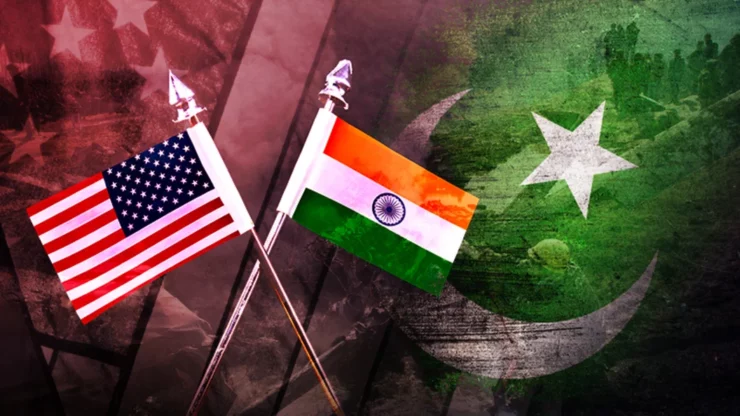
One of the main current trends in U.S. foreign policy is to force its partners, including India, by hook or by crook, to join the U.S. initiative to form a unified coalition to contain China’s growing power. But does New Delhi need to sign on to such alliances?
Not long ago, Indian Prime Minister Narendra Modi made a state visit to the United States, where he was warmly welcomed by President Joe Biden, who hosted a reception at the White House for the occasion.
In general, Biden has been very generous lately in his attempts to drag his partners into an anti-Chinese alliance. In April of this year, a posh reception was held in honor of South Korean President Yoon Suk-yeol. A week before the visit, in an interview with Reuters, the Korean leader simply made a bow to his American counterpart, saying that the two countries “should prepare more decisive measures than those available to NATO.” He acknowledged the prospect of Seoul providing military aid to Ukraine in the event of a situation there that “the international community would not be able to tolerate.” And described the Taiwan issue as “a global problem, not just a problem between China and Taiwan.” The new administration led by Yoon Suk-yeol is ready to follow Washington’s lead, even at the expense of its own economic interests. It is worth noting that China is South Korea’s main trading partner, with trade turnover exceeding $300 billion in 2022. But Seoul is very much afraid of its northern neighbor, North Korea, and hopes exclusively for U.S. protection.
An equally warm reception was given last November in honor of Emmanuel Macron, Biden’s counterpart from France. However, Paris declined the “tempting” offer of friendship against China, and in April of this year, Macron visited Beijing, causing displeasure to his overseas headman.
And what about India, which the White House is actively attempting to put against China and to force it to curtail its beneficial economic cooperation with Moscow, hence impeding Western sanctions against Russia?
India’s situation is somewhat more complicated. Unlike Paris and Seoul, there is a concrete territorial dispute between New Delhi and Beijing over a small, high altitude, rocky piece of land. On the other hand, India, like China and Russia, is a member of BRICS and the SCO, as well as one of the global South countries advocating for a more equitable multipolar world order.
Despite its financial, technological, and military might, the United States has little to give India. Of course, the signing of a number of important agreements on military-technical cooperation was timed to coincide with Modi’s visit to Washington, but this is an area where the state plays a decisive role. In addition, the parties decided to work together on space exploration and repair American ships in Indian shipyards.
Despite fabricating a military-economic conspiracy centered on China, the White House is unable to direct American companies to shut down their existing operations there or refrain from starting any new ones. Just three weeks before the Indian prime minister’s visit to the United States, American entrepreneur Elon Musk visited the Celestial Empire and discussed the growth of automobile manufacturing with local high-ranking officials. And Musk had absolutely no interest in what Messrs. Biden, Blinken, Austin, etc. thought of the PRC.
Modi’s trip to Washington came immediately after US Secretary of State Blinken’s visit to Beijing. During the negotiations, Blinken worked hard to restore US-Chinese relations, which are at their lowest point since diplomatic relations were established, particularly following the visit of Nancy Pelosi, speaker of the United States House of Representatives, to Taiwan. He even declared publicly that the White House would not support Taipei’s potential declaration of independence. America badly needs China. Trade between the two countries hit a record high in 2022 and nearly reached $700 billion for the first time. However, the White House host destroyed all of the Secretary of State’s efforts, when in response to a greeting from Chinese President Xi Jinping, he promptly referred to him as a “dictator.”
Even at the highest echelons of US leadership, it appears that there is no cohesive opinion on China policy. So, does it make sense for India to join an alliance which is undermined by contradictions? Given that new problems in relations with its regional neighbor may arise in large numbers.
Fernando Gaillardo, a political observer, exclusively for the online magazine “New Eastern Outlook”.
